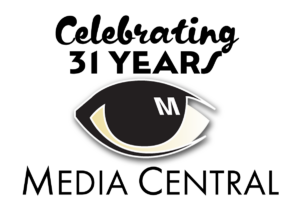
By John Aaron, CPA
Butler, Lavanceau & Sober, LLC
The IRS publishes an Entertainment Audit Technique Guide to be used by agents when they review the income tax returns for entertainers and media creators. Here is a summary of some topics that the IRS spotlights for examination.
Keeping Current
Entertainers and media creators have been known to make a convincing argument about how much they have to spend to “stay on top” or keep current; nevertheless, most of these items typically overlap too much with personal expenses to constitute business deductions.
The following steps identify whether a typical personal expense is deductible.
Determine whether the expense is allowable.
· If the expense is not allowable under tax law, the deduction is not allowed.
· If the expense is allowable, next determine whether the taxpay maintains suitable records.
· If the records do not satisfy the IRS requirements, the expense is not allowed. If the records do satisfy the IRS, the expense is allowed.
Cable TV
Taxpayers in the entertainment industry often try to deduct amounts paid for cable television. They must be able to show how cable TV, as a whole, specifically benefits their employment.
The Internal Revenue Code places strict limits on deductions for items which are “generally considered to constitute amusement, entertainment, or recreation.” Such items are thus deductible only where there is a clear tie to particular work. Cable TV may also be deducted as an educational or research tool. To qualify as an educational tool, it must directly benefit the taxpayer’s trade or business. This must be shown through written documentation. In addition to the recordkeeping requirements of the tax law, there should be some note-taking showing exactly what educational benefit was achieved. This may take any form that is reasonable for the particular event. The easier it is to trace the expense to a particular event or class, the better the chances of an allowable deduction.
If the taxpayer has a spouse or children in the household, their personal use of the cable television should also be considered in determining any allowable deduction.
Movies and Theatre
The same situation exists for movie and theatre tickets. Movies and theatre are deducted as entertainment or education/research. Either way, the same documentation requirements exist. The taxpayer must specifically identify how the movie or play directly applied to his or her career at the time through the appropriate documentation. Even where a deduction for a particular event is allowed such as a theatre ticket to a certain play to research an upcoming film role, only one ticket would generally be deductible.
Writers Guild, Directors Guild, and various professional groups offer regular screenings of new releases to members; thus, membership fees paid by the taxpayer may already cover at least some of these “necessary” expenses. Members of the American Film Institute (AFI) and various other organizations receive free passes to the cinemas. Thus, it cannot be assumed that all tickets represent an actual cash outlay.
Appearance and Image
Taxpayers in the entertainment industry sometimes incur unusually high expenses to maintain an image. These expenses are frequently related to the individual’s appearance in the form of clothing, make-up, and physical fitness. Other expenses in this area include bodyguards and limousines. These are generally found to be personal expenses as the inherently personal nature of the expense and the personal benefit far outweigh any potential business benefit.
No deduction is allowed for wardrobe, general make-up, or hair styles for auditions, job interviews, or “to maintain an image.”
Wardrobe
To deduct clothes as a business expense, the following three requirements must be met: (1) the clothes must be required by the employer, (2) the clothes must not be suitable for general or personal wear, and (3) the clothes must not be worn for general or personal wear.
When the production companies do not provide or pay for the wardrobe; expenses for costumes and “period” clothing are generally deductible. However, most union contracts provide for compensation to be given performers who require special wear. The taxpayer must prove that his or her contract did not include such reimbursement for the expense to be allowable.
Make-up
The studio usually provides make-up for performances. Stage make-up that the taxpayer buys for an audition or a live theatrical performance may be deductible, if it is not a general over-the- counter product.
Physical Fitness
Deductions for general physical fitness are not allowable. Usually, if physical fitness is required for a specific job, the studio will be responsible for the cost (by either paying it directly or indirectly by reimbursement/allowance). If the taxpayer was employed in a capacity that required physical conditioning, allow expenses for the duration of employment if no reimbursement or compensation was available.
Security
Physical security is also too personal an item to be deducted, unless there is a clear business purpose, e.g., controlling crowds or paparazzi at an event when that service is not provided by the venue or a producer.

















